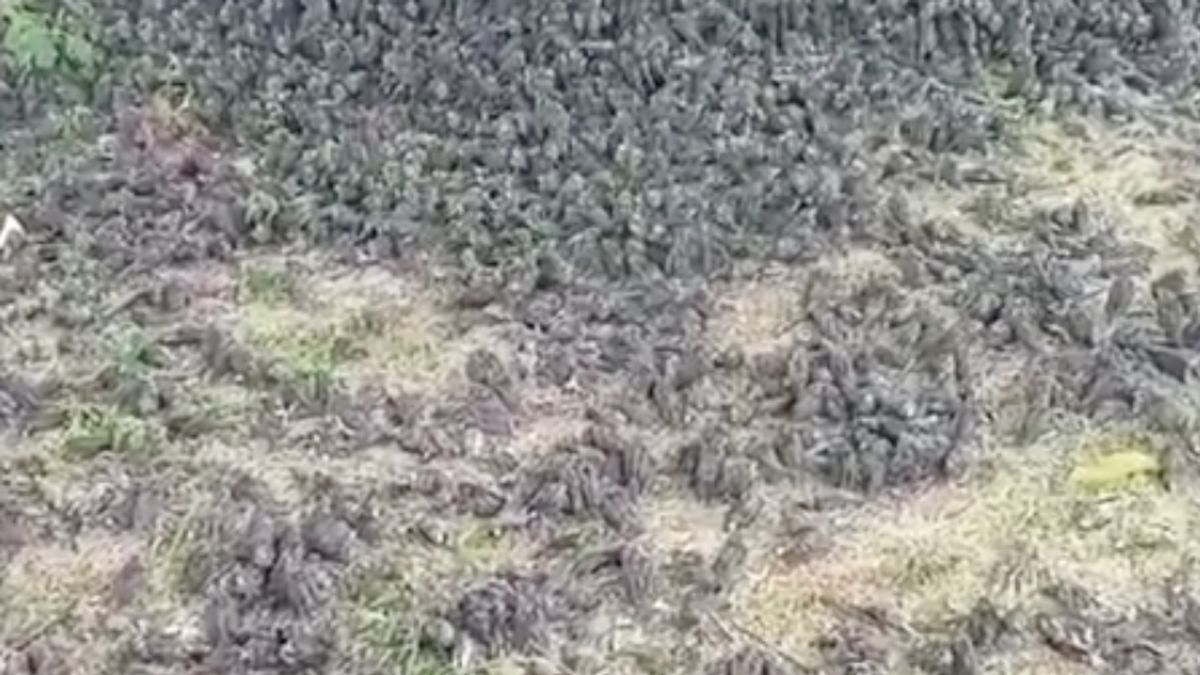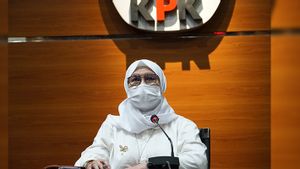DENPASAR - The phenomenon of the death of hundreds of sparrows in Bali does not just happen once. Five years ago the same thing happened in Denpasar and Tabanan Regency, Bali.
Head of Region II Section, Bali Conservation and Natural Resources Center (BKSDA), Sulistyo Widodo, explained that the deaths of thousands of sparrows had occurred in the Sanglah Hospital area, Denpasar, and in Selemadeg Village, Tabanan Regency, Bali.
"This incident is neither the first in Bali nor the first in Indonesia. In Bali, in the last five years there have also been incidents in the Sanglah area of Denpasar City, also in Selemadeg, Tabanan Regency, also in Sukabumi, West Java, in July 2021", said Widodo, Friday, September 10.
The Bali BKSDA and the Gianyar Regency Animal Health Service have examined the location of the death of hundreds of sparrows in Pering Village, Blabatuh District, Gianyar Regency, Bali.
"We also took samples of bird carcasses and bird droppings to be taken to the animal health laboratory to find out the cause of the incident", he added.
In addition, the BKSDA mentioned that thousands of sparrows died simultaneously because these birds are colony animals that live in large groups.
"The small size of the birds causes the tendency to colonize in large numbers to reduce the risk to predators. Including, even when resting in groups, usually in one large tree can be up to thousands of birds", he said.
Regarding the sudden death of sparrows, further investigation is needed. However, there are several possibilities that occur, namely birds eating contaminated feed alias containing herbicides and pesticides.
“After eating it, of course, the bird does not die immediately, because the process of toxification also takes time to reach the level of mortality. Most likely when the birds rest at night and in the morning the carcasses are scattered. So it's not because of its location in the setra grave (grave)", he said.
SEE ALSO:
Meanwhile, the second possibility is contracting certain diseases. Given the sparrows live in colonies in large numbers. So, the transmission will be fast and the death will also be in large numbers.
"It could also be due to a virus or other causes that must be proven by analysis of carcasses and analysis of bird droppings", he explained.
The weather factor called BKSDA also has an effect. Rapid changes in weather can irritate sparrows.
"For example, the weather in Bali is hot, when the birds are resting at night, suddenly heavy rain falls, the temperature and humidity change drastically. Birds are shocked, stressed, and then die en masse. the cause of mass mortality or other causes that we don't know yet", Widodo said.
The English, Chinese, Japanese, Arabic, and French versions are automatically generated by the AI. So there may still be inaccuracies in translating, please always see Indonesian as our main language. (system supported by DigitalSiber.id)
















